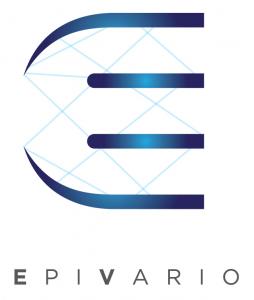
EpiVario Announces Issuance of Seminal Patents Covering ACSS2 Inhibitors and their Use in Substance Use Disorders
USPTO and Japan Patent Office issue patents for novel compounds inhibiting ACSS2 and their use for treating or preventing a memory-related disorders
PHILADELPHIA, PA, UNITED STATES, October 29, 2024 /EINPresswire.com/ -- EpiVario, Inc., a biotech company at the forefront of developing novel therapeutics for memory-related psychiatric disorders, today announced that the United States Patent and Trademark Office (“USPTO”) has granted US Patent No. 12,077,527. This patent covers small molecule inhibitors of acetyl co-A synthetase 2 (ACSS2) and their use in treating memory-related conditions, including addiction disorders involving alcohol, tobacco, cocaine, and opioids. Additionally, the Japan Patent Office has granted a corresponding patent, JP7423068B2. These patents, co-invented by EpiVario co-founders Dr. Philipp Mews and Dr. Shelley Berger, have been exclusively licensed worldwide to EpiVario from the University of Pennsylvania.
EpiVario is actively developing a portfolio of ACSS2 inhibitors targeting a range of substance use disorders (SUDs), including opioid use disorder (OUD) and cocaine use disorder (CUD).
Substance use disorder is defined by the compulsive inability to control drug use despite severe physical, emotional, and social consequences. ACSS2 inhibitors leverage an epigenetic mechanism to combat SUD by modulating neuronal plasticity, thereby weakening drug-craving memories triggered by environmental cues. The metabolic enzyme ACSS2 generates acetyl-CoA, a molecule essential for forming drug-craving memories. By disrupting this process, EpiVario aims to deliver an acute therapeutic intervention that reduces cravings and helps prevent relapse in individuals battling use disorders.
"This patent marks a significant milestone for both our company and our partners," said Thomas Kim, President & CEO of EpiVario. "As we continue to progress in the development of a treatment for SUD, these patents form a critical part of our intellectual property strategy, positioning us to deliver significant value to our patients and stakeholders.”
Philipp Mews, PhD, Co-Founder of EpiVario and Assistant Professor at Boston University, added, “Securing these patents is a pivotal moment in our mission to revolutionize treatment for substance use disorders. By focusing on the epigenetic processes that solidify drug-related memories, we are developing a therapeutic approach that directly intervenes at the root of addiction. This milestone brings us closer to delivering a transformative solution that not only curbs cravings but also empowers patients to achieve lasting recovery and a brighter future.”
ABOUT EPIVARIO
EpiVario is pioneering novel epigenetic therapeutics for the treatment of neuropsychiatric disorders. Spun out of the Epigenetics Institute of The University of Pennsylvania, the company is developing pharmacotherapeutics that target a newly discovered epigenetic process in long-term memory formation. By targeting this activity to modulate stress and drug-related memories, EpiVario is establishing a novel, differentiated, and promising approach to address substance use disorders and PTSD.
For further information, please visit epivario.com. Follow EpiVario on Twitter at @EpiVario and on LinkedIn at www.linkedin.com/company/epivario
CONTACT: thomas.kim@epivario.com
Thomas Kim
EpiVario Inc.
email us here
Visit us on social media:
Facebook
X
LinkedIn
Distribution channels: Companies, Healthcare & Pharmaceuticals Industry, World & Regional
Legal Disclaimer:
EIN Presswire provides this news content "as is" without warranty of any kind. We do not accept any responsibility or liability for the accuracy, content, images, videos, licenses, completeness, legality, or reliability of the information contained in this article. If you have any complaints or copyright issues related to this article, kindly contact the author above.
Submit your press release
